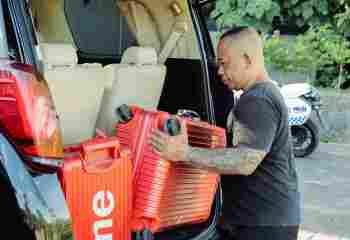More About Codependency Treatment Centers
Codependency is a psychological and behavioral condition that develops when one person in a relationship excessively relies on another for emotional support, approval, and validation. It’s an unhealthy pattern of enabling, caretaking, and self-sacrifice to meet the other person's needs at the expense of one's well-being.
In a codependent relationship, there is an imbalance of power. One person assumes the role of the caretaker, while the other person becomes dependent on the caretaker. The codependent person often has low self-esteem, feels responsible for others’ happiness, and struggles setting healthy boundaries. A codependent relationship can form not only between romantic partners, but also in relationships with family members or friends.
Common signs of codependency include:
- Excessive people-pleasing: Putting others' needs before one's own and neglecting personal needs and desires.
- Low self-esteem: Seeking validation and approval from others to feel self-worth.
- Difficulty setting boundaries: Difficulty saying no due to a fear of abandonment if they enforce personal boundaries.
- Poor communication: Difficulty expressing emotions, needs, and opinions openly and honestly.
- Caretaking behavior: Assuming responsibility for others' problems or trying to “fix” them.
- Denial of emotions: Repressing personal feelings while prioritizing others’ feelings and needs.
- Fear of abandonment: Fearing solitude and going to great lengths to avoid rejection.
How Codependency Affects Relationships
Codependency can significantly affect relationships, often leading to dysfunctional dynamics and emotional distress for both partners. Recognizing the signs is the first step in healing:
- Enabling and dependency: In a codependent relationship, one person takes on the role of the enabler, while the other person becomes dependent on the enabler. This can perpetuate a cycle of unhealthy behaviors, such as addiction, irresponsibility, or emotional instability.
- Lack of boundaries: Codependency often involves blurred or nonexistent boundaries. Both people may struggle to establish and enforce personal boundaries, leading to a loss of individuality.
- Imbalanced power dynamics: Codependency often involves an imbalance of power, as one person is dependent on another. This power imbalance can lead to control issues, manipulation, and a lack of equality within the relationship.
- Lack of personal growth: Codependency can hinder personal growth for both parties. The codependent person may become overly focused on the other person's needs, neglecting their goals and aspirations.
- Resentment: The codependent partner often sacrifices their well-being for the other person's sake. Over time, this can lead to resentment, frustration, and emotional exhaustion.
- Communication difficulties: Codependent relationships can have poor communication patterns. They may struggle to express their feelings, needs, and opinions openly due to fear of rejection or conflict.
Am I Codependent?
Identifying if you’re codependent is a valuable step toward self-awareness and personal development. Reflecting on the following questions may help you determine if you’ve become codependent in a relationship:
- Do I have difficulty setting, and maintaining, boundaries with my partner?
- Do I have my own activities, friendships, and events that I look forward to that don’t involve my significant other?
- Do I constantly seek approval from my partner about most things I do?
- Do I consistently put others’ needs before my own?
- Do I have a hard time saying no to something that makes me uncomfortable?
- Do I tend to stay with people just so I’m not alone?
- Do I have difficulty ending relationships, even if they’re toxic?
Experiencing one or more of these signs does not necessarily mean you are codependent; however, if you’re seeing a strong pattern among your answers to these questions, you may want to seek professional support to help you navigate your codependent patterns.
Treatment for Codependency
Treatment typically involves a combination of self-help strategies, therapy, and support systems to help you discover how codependency manifests in your life. Here are some ways you can heal to start building healthier relationships:
Therapy
Reach out to a mental health professional who specializes in codependency. This could be a therapist, psychologist, or counselor. You’ll engage in individual therapy to explore why you seek out and create codependent relationships. Participating in evidence-based therapies such as cognitive behavioral therapy (CBT) allows you to work through the underlying causes, change unhealthy patterns, and develop healthier coping mechanisms for uncomfortable emotions.
Family, Friends, and Support Systems
In addition to individual therapy, family therapy can heal the impact of your codependent relationship on you and your loved ones. It can teach you and your family how to communicate healthily and promote positive relationship behaviors. It will also educate them on codependency and encourage open and honest communication.
Joining support groups specifically focused on codependency may also be helpful, such as Co-Dependents Anonymous (CoDA). These groups provide opportunities to connect with others who share similar experiences, gain support, and learn from their insights and journeys.
Self
During treatment, prioritize self-care and focus on establishing healthy boundaries in your relationships. You’ll learn to recognize and honor your needs, emotions, and limitations. Practicing self-compassion can develop a strong sense of self-worth.
Recovery from codependency is an ongoing process. Be patient with yourself, celebrate progress, and seek support when needed. With the proper help and strategies, it’s possible to overcome codependency and cultivate healthier, more fulfilling relationships.
Helping a Loved One in a Codependent Relationship
If you know someone in a codependent relationship, you can show them support through empathy, understanding, and patience. Allow the person to express their feelings and thoughts without judgment, and let them know that you are there to support them throughout their recovery journey.
Encourage treatment from licensed professionals. You can help them find appropriate treatment options, make appointments, and accompany them to appointments if they’d like.
If someone you know is in a crisis or abusive situation, call 911. Ensuring their safety is a top priority.






















































































